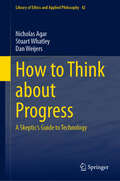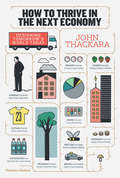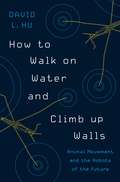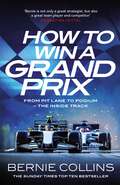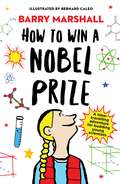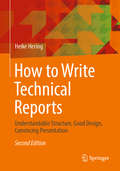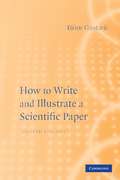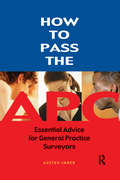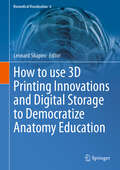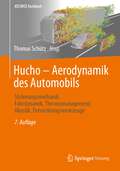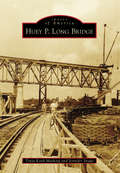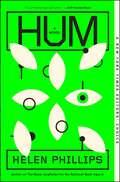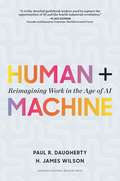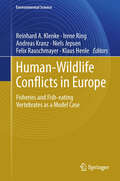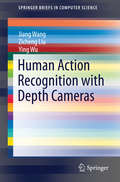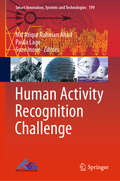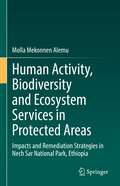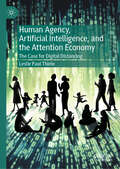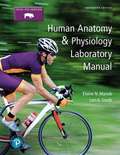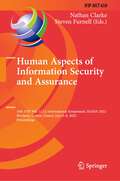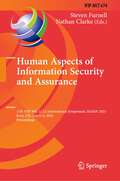- Table View
- List View
How to Think about Progress: A Skeptic's Guide to Technology (Library of Ethics and Applied Philosophy #42)
by Nicholas Agar Stuart Whatley Dan WeijersHow to Think about Progress is an interdisciplinary work exploring whether optimistic claims about technology’s potential stand up to humanity’s most difficult challenges. Will technology solve the problems of climate change, pandemics, cancer, loneliness, unhappiness, and even death? The authors show that techno-hype is all too often accepted because of the horizon bias, i.e. the modern propensity to believe that any problem that can be solved with technology will be solved in the very near future. The authors situate their analysis in a broad context, drawing on history, literature, and popular culture to emphasize their case against techno-hype. They also draw on a wide range of research, including that of biologists, philosophers of science and of language, psychologists, theorists of technological change, specialists on digital technologies, historians of ideas, and economists. As a corrective to much mainstream “futurism,” the book offers principles for seeing through much of the techno-hype that circulates online and in best-selling books. The authors share insights (without the jargon) from a variety of academic disciplines, making this book an engaging read for all audiences. Readers will find a balanced framework for thinking and writing about technological progress in the face of truly vexing challenges like cancer, climate change, and colonizing mars.
How to Thrive in the Next Economy: Designing Tomorrow's World Today
by John ThackaraA visionary yet practical guide to building a more sustainable future, by one of the most important voices in environmentally aware design Are there practical solutions to the many global challenges—climate change, poverty, insufficient healthcare—that threaten our way of life? Author John Thackara has spent a lifetime roving the globe in search of design that serves human needs. In this clear-eyed but ultimately optimistic book, he argues that, in our eagerness to find big technological solutions, we have all too often ignored the astonishing creativity generated when people work together and in harmony with the world around them. Drawing on an inspiring range of examples, from a temple-led water management system in Bali that dates back hundreds of years to an innovative e-bike collective in Vienna, Thackara shows that below the radar of the mainstream media there are global communities creating a replacement economy—one that nurtures the earth and its inhabitants rather than jeopardizing its future—from the ground up. Each chapter is devoted to a concern all humans share—land and water management, housing, what we eat, what we wear, our health, how and why we travel—and demonstrates that it is possible to live a rich and fulfilling life based on stewardship rather than exploitation of the natural environment.
How to Use a Breadboard!
by Jody Culkin Sean Michael RaganThis full-color, illustrated handbook uses comic book-style panels to explain the basics of using a breadboard; then it walks you through ten fun and educational projects. You'll learn-by-doing as you study the circuit diagrams and colorful drawings, working your way through each project. Bonus features include an "X-Ray" drawing of the inside of the breadboard and a guide to understanding resistor color codes. A solderless breadboard is the perfect platform for learning electronics, whether at home or in the classroom, because it can be used over and over again for different circuits. With the projects in this handbook, you will learn how to use a light sensor, a potentiometer, a diode, a 555 timer, capacitors, transistors, and more! You'll also be challenged to actively figure out what else you can do with the circuits you have built.Learn how to build the following circuits:Dark DetectorLED FlasherElectric CricketBreathing LEDBanshee SirenLight TheraminBlues OrganBike Signal LightTouch SwitchLed Color OrganAs you gain experience building the circuits, you'll also learn how to read schematics - the shorthand language of electronics. The glossary provides definitions and illustrations for terms that may be unfamiliar.There's no better way to learn than by making things yourself. In this booklet you won't be handed all the answers. You'll be encouraged to experiment, and you'll be asked questions that you'll have to try to answer yourself. Get started with your breadboard experiments today.Electronics is the perfect STEM subject because it touches on all the key components - science, technology, engineering, and mathematics. Build your technical skills with this hands-on learning course!
How to Walk on Water and Climb up Walls: Animal Movement and the Robots of the Future
by David HuDiscovering the secrets of animal movement and what they can teach usInsects walk on water, snakes slither, and fish swim. Animals move with astounding grace, speed, and versatility: how do they do it, and what can we learn from them? In How to Walk on Water and Climb up Walls, David Hu takes readers on an accessible, wondrous journey into the world of animal motion. From basement labs at MIT to the rain forests of Panama, Hu shows how animals have adapted and evolved to traverse their environments, taking advantage of physical laws with results that are startling and ingenious. In turn, the latest discoveries about animal mechanics are inspiring scientists to invent robots and devices that move with similar elegance and efficiency.Hu follows scientists as they investigate a multitude of animal movements, from the undulations of sandfish and the way that dogs shake off water in fractions of a second to the seemingly crash-resistant characteristics of insect flight. Not limiting his exploration to individual organisms, Hu describes the ways animals enact swarm intelligence, such as when army ants cooperate and link their bodies to create bridges that span ravines. He also looks at what scientists learn from nature’s unexpected feats—such as snakes that fly, mosquitoes that survive rainstorms, and dead fish that swim upstream. As researchers better understand such issues as energy, flexibility, and water repellency in animal movement, they are applying this knowledge to the development of cutting-edge technology.Integrating biology, engineering, physics, and robotics, How to Walk on Water and Climb up Walls demystifies the remarkable mechanics behind animal locomotion.
How to Win a Grand Prix: From Pit Lane to Podium - the Inside Track
by Bernie Collins'Bernie is not only a great strategist, but also a great team player and competitor' Sebastian VettelRace-winning team strategist shows how F1 really works. Welcome to Bernie Collins' world. Formula 1 drivers are the public face of Grand Prix racing but behind every driver is a team of several hundred people sharing the same passionate desire to win. On race day it's the Team Strategist who calls the shots, working under immense pressure to make split second and crucial decisions. Through her eyes and experience as a Performance Engineer and Head of Race Strategy, Bernie takes you behind the scenes of a Formula 1 team - both in the factory and at the races - to uncover what it takes to put two Formula 1 cars on the grid and go racing.How to Win a Grand Prix gives incredible insight of the entire process from design and construction, through pre-season testing, and how a team prepares for each Grand Prix. For race weekend itself, Bernie recreates it hour-by-hour to plunge the reader behind the pit wall and see what it's actually like to get from grid to podium.
How to Win a Grand Prix: From Pit Lane to Podium - the Inside Track
by Bernie Collins'Bernie is not only a great strategist, but also a great team player and competitor' Sebastian VettelRace-winning team strategist shows how F1 really works. Welcome to Bernie Collins' world. Formula 1 drivers are the public face of Grand Prix racing but behind every driver is a team of several hundred people sharing the same passionate desire to win. On race day it's the Team Strategist who calls the shots, working under immense pressure to make split second and crucial decisions. Through her eyes and experience as a Performance Engineer and Head of Race Strategy, Bernie takes you behind the scenes of a Formula 1 team - both in the factory and at the races - to uncover what it takes to put two Formula 1 cars on the grid and go racing.How to Win a Grand Prix gives incredible insight of the entire process from design and construction, through pre-season testing, and how a team prepares for each Grand Prix. For race weekend itself, Bernie recreates it hour-by-hour to plunge the reader behind the pit wall and see what it's actually like to get from grid to podium.
How to Win a Grand Prix: From Pit Lane to Podium - the Inside Track
by Bernie Collins'Bernie is not only a great strategist, but also a great team player and competitor' Sebastian VettelRace-winning team strategist shows how F1 really works. Welcome to Bernie Collins' world. Formula 1 drivers are the public face of Grand Prix racing but behind every driver is a team of several hundred people sharing the same passionate desire to win. On race day it's the Team Strategist who calls the shots, working under immense pressure to make split second and crucial decisions. Through her eyes and experience as a Performance Engineer and Head of Race Strategy, Bernie takes you behind the scenes of a Formula 1 team - both in the factory and at the races - to uncover what it takes to put two Formula 1 cars on the grid and go racing.How to Win a Grand Prix gives incredible insight of the entire process from design and construction, through pre-season testing, and how a team prepares for each Grand Prix. For race weekend itself, Bernie recreates it hour-by-hour to plunge the reader behind the pit wall and see what it's actually like to get from grid to podium.
How to Win a Nobel Prize
by Barry MarshallA time-travelling adventure for budding young scientists, by Nobel Prize winning Barry Marshall Mary has always wanted to win a Nobel Prize and loves running her own science experiments at home. One day Mary stumbles on a secret meeting of Nobel Prize winners. Dr Barry Marshall agrees to travel with her through time to learn the secrets behind some of the most fascinating and important scientific discoveries. They talk time and space with Albert Einstein, radiation with Marie Curie, DNA with Crick, Watson and Wilkins – and much more. Featuring famous Nobel prize-winners: Albert Einstein • Marie Curie • Guglielmo Marconi Francis Crick, James Watson and Maurice Wilkins • Alexander Fleming • Tu Youyou • Subrahmanyan Chandrasekhar • Gertrude Elion • Norman Borlaug • Rita Levi-Montalcini • Jean-Pierre Sauvage, J. Fraser Stoddart and Bernard Feringa • Barry Marshall and Robin Warren
How to Write Technical Reports: Understandable Structure, Good Design, Convincing Presentation
by Heike HeringHow to Write Technical Reports
How to Write and Illustrate a Scientific Paper (Second Edition)
by Björn GustaviiThis second edition of How to Write and Illustrate a Scientific Paper will help both first-time writers and more experienced authors, in all biological and medical disciplines, to present their results effectively. Whilst retaining the easy-to-read and well-structured approach of the previous edition, it has been broadened to include comprehensive advice on writing compilation theses for doctoral degrees, and a detailed description of preparing case reports. Illustrations, particularly graphs, are discussed in detail, with poor examples redrawn for comparison. The reader is offered advice on how to present the paper, where and how to submit the manuscript, and finally, how to correct the proofs. Examples of both good and bad writing, selected from actual journal articles, illustrate the author's advice - which has been developed through his extensive teaching experience - in this accessible and informative guide.
How to pass the APC
by Austen ImberGraduates undertaking the RICS Assessment of Professional Competence (APC) often find that, in addition to the general information provided by the RICS, guidance is needed on specific areas of their work as general practice surveyors. How to Pass the APC: Essential Advice for General Practice Surveyors has been built around the needs of general practice surveyors, and guides you through the APC process in line with your own competencies – including valuation, marketing, landlord and tenant, estate management, rating, and planning and development work, together with more specialist areas. The author highlights the essentials, showing you how to approach the presentation and interview, providing a bank of examples of real APC questions, together with illustrative responses to demonstrate how the interview process works. Accessible and easy to use, this book gives you comprehensive coverage of the fundamental elements and is a must read for anyone taking the APC.
How to use 3D Printing Innovations and Digital Storage to Democratize Anatomy Education (Biomedical Visualization #6)
by Leonard ShapiroThis edited book contains chapters that describe bespoke three-dimensional (3D) printing aimed at democratizing anatomy education by providing open-source scans for download and printing as 3D models. The long history of anatomical models as educational resources is explored in fascinating detail, from wax models through to a range of cutting-edge 3D printers. In a related chapter, a veterinary anatomy educator describes a transformation in teaching and learning methods in veterinary education using Augmented Reality (AR), Virtual Reality (VR) and 3D visualization methods like CT or MRI images which can be used to reconstruct complete 3D virtual models, as well as 3D prints from these reconstructed scans. The first digital, cloud-based human skeletal repository in southern Africa is an extensive and categorized ‘bone library’ globally accessible for use in education and research. A chapter details a digital protocol for the bioprinting of a 3D acellular dermal scaffold (ADS) for use in wound healing, as an alternative to skin grafting for secondary intention wound healing. A chapter offers an extensive guide to applied anatomy for acupuncture and is provided in 4 parts viz, upper limb, lower limb, trunk, head and neck. Each part of the chapter is replete with beautiful cadaveric images including annotations that relate specifically to information in the text. We look at vertebral artery variations and its role in clinical conditions, current insights into polycystic ovarian syndrome, and visual interpretation using multiplex immunoassay of serum samples. This book will appeal to educators of both human and animal anatomy who have a keen interest and focus on the use of bespoke 3D printing, augmented and virtual reality, as well as acupuncture practitioners, clinicians, regenerative medicine specialists, surgeons, tissue engineers and artists.
Hucho - Aerodynamik des Automobils: Strömungsmechanik, Fahrdynamik, Thermomanagement, Akustik, Entwicklungswerkzeuge (ATZ/MTZ-Fachbuch)
by Thomas SchützLeistung, Fahrverhalten und Komfort eines Automobils werden nachhaltig von seinen aerodynamischen Eigenschaften bestimmt. Ein niedriger Luftwiderstand ist die Voraussetzung dafür, dass die hochgesteckten Verbrauchziele erreicht werden. Die Aerodynamik des Automobils ist 1981 erstmalig erschienen und seitdem zu einem Standardwerk geworden. Der Stoff ist von Praktikern erarbeitet worden, die aus einer Vielzahl von Versuchen strömungsmechanische Zusammenhänge ableiten und Strategien beschreiben.Bei unveränderter Geamtkonzeption wurden für die 6. Auflage neue Ergebnisse zum induzierten Widerstand und zur Haltung der Fahrtrichtung bei Seitenwind aktualisiert. Völlig neu wurden die Kapitel über Kühlung und Durchströmung(HVAC) sowie über numerische Methoden wie CFD, Netzgenerierung und CAD erarbeitet.
Hudson River Bridges (Images of America)
by Kathryn W. BurkeThe Hudson River Valley, an invaluable connection between New England and the rest of the colonies during the American Revolution, continues to be a major crossroads today. The Hudson River bridges were architectural marvels of their time. The Bear Mountain Bridge was the longest suspension bridge, while the Newburgh Beacon second span was built with a new type of weathering steel. The bridges were constructed during important times in history. The Bear Mountain Bridge was built as the automobile became an integral part in the country's development, and the Mid-Hudson Bridge was built during the Depression. Labor disputes helped develop labor laws, and world wars led to changes in activity on the bridges. Through historical photographs from sources including the New York State Bridge Authority and the Port Authority of New York and New Jersey, Hudson River Bridges documents how these structures remain beautiful testaments to cooperative efforts during trying times in America's history.
Huey P. Long Bridge
by Jennifer Snape Tonja Koob MarkingNamed after the 40th governor of Louisiana, the Huey P. Long Bridge, just outside of New Orleans in Jefferson Parish, is the longest railroad bridge in the United States. For 15 years after it opened in 1935, it was the longest railroad bridge in the world. Initially conceived in 1892, the "Huey P." was the first bridge to span the deep-draft navigation channel of the lower Mississippi River, opening the path for a southern transcontinental railroad. The highway and pedestrian portions of the bridge provided additional transport, which previously had only been available by ferry. New Orleans and its surrounding regions grew in population and economic importance as the publicly owned bridge connected the Port of New Orleans to the rest of the United States through six Class I railroads. The Huey P. continues to function in its original, now undersized, capacity. In April 2006, the state began a widening of the bridge to double its automobile lanes from 18 feet to 43 feet. In September 2012, the American Society of Civil Engineers dedicated the Huey P. Long Bridge as a Historic Civil Engineering Landmark.
Hum: A Novel
by Helen PhillipsA Most Anticipated Book for The New York Times, The Washington Post, Time, Goodreads, LitHub, and Book Riot A Best Book of the Summer for Esquire, Electric Lit, and Town & Country A People Book of the Week From &“one of our most profound writers of speculative fiction&” (The New York Times), this &“tense dystopian thriller&” (Time) and &“tender portrait of love and care in an uncertain world&” (Esquire) is an urgent and unflinching portrayal of a woman&’s fight for her family&’s security in a world shaped by global warming and rapid technological progress.In a near-future world addled by climate change and inhabited by intelligent robots called &“hums,&” May loses her job to artificial intelligence. Desperate to resolve her family&’s debt and secure their future for another few months, she becomes a guinea pig in an experiment that alters her face so it cannot be recognized by surveillance. Seeking reprieve from her recent hardships and her family&’s addiction to their devices, May splurges on passes for her family to spend three nights respite in the Botanical Garden: a rare green refuge where forests, streams, and animals still thrive. But when her children come under threat, May is forced to put her trust in a hum of uncertain motives to save her family. Written with &“precision, insight, sensitivity, and compassion&” (Kirkus Reviews, starred review), Hum is a &“striking new work of dystopian fiction&” (Vogue) that delves into the complexities of marriage, motherhood, and selfhood in a world compromised by global warming and dizzying technological advancement, a world of both dystopian and utopian possibilities.
Human + Machine: Reimagining Work In The Age Of AI
by H. James Wilson Paul R. DaughertyIn Human + Machine, Accenture leaders Paul R. Daugherty and H. James (Jim) Wilson show that the essence of the AI paradigm shift is the transformation of all business processes within an organization--whether related to breakthrough innovation, everyday customer service, or personal productivity habits. As humans and smart machines collaborate ever more closely, work processes become more fluid and adaptive, enabling companies to change them on the fly--or to completely reimagine them. AI is changing all the rules of how companies operate. <p><p> Based on the authors' experience and research with 1,500 organizations, the book reveals how companies are using the new rules of AI to leap ahead on innovation and profitability, as well as what you can do to achieve similar results. It describes six entirely new types of hybrid human + machine roles that every company must develop, and it includes a "leader’s guide" with the five crucial principles required to become an AI-fueled business. <p> Human + Machine provides the missing and much-needed management playbook for success in our new age of AI.
Human - Wildlife Conflicts in Europe
by Felix Rauschmayer Niels Jepsen Klaus Henle Reinhard A. Klenke Irene Ring Andreas KranzThis book is about conflicts between different stakeholder groups triggered by protected species that compete with humans for natural resources. It presents key ecological features of typical conflict species and mitigation strategies including technical mitigation and the design of participatory decision strategies involving relevant stakeholders. The book provides a European perspective, but also develops a global framework for the development of action plans.
Human Action Recognition with Depth Cameras
by Ying Wu Jiang Wang Zicheng LiuAction recognition technology has many real-world applications in human-computer interaction, surveillance, video retrieval, retirement home monitoring, and robotics. The commoditization of depth sensors has also opened up further applications that were not feasible before. This text focuses on feature representation and machine learning algorithms for action recognition from depth sensors. After presenting a comprehensive overview of the state of the art, the authors then provide in-depth descriptions of their recently developed feature representations and machine learning techniques, including lower-level depth and skeleton features, higher-level representations to model the temporal structure and human-object interactions, and feature selection techniques for occlusion handling. This work enables the reader to quickly familiarize themselves with the latest research, and to gain a deeper understanding of recently developed techniques. It will be of great use for both researchers and practitioners.
Human Activity Recognition Challenge (Smart Innovation, Systems and Technologies #199)
by Sozo Inoue Md Atiqur Rahman Ahad Paula LagoThe book introduces some challenging methods and solutions to solve the human activity recognition challenge. This book highlights the challenge that will lead the researchers in academia and industry to move further related to human activity recognition and behavior analysis, concentrating on cooking challenge. Current activity recognition systems focus on recognizing either the complex label (macro-activity) or the small steps (micro-activities) but their combined recognition is critical for analysis like the challenge proposed in this book. It has 10 chapters from 13 institutes and 8 countries (Japan, USA, Switzerland, France, Slovenia, China, Bangladesh, and Columbia).
Human Activity, Biodiversity and Ecosystem Services in Protected Areas: Impacts and Remediation Strategies in Nech Sar National Park, Ethiopia
by Molla Mekonnen AlemuThis book examines the development needs of protected areas with threatened ecological biodiversity to gain deeper understanding of the local perspective of protected area ecosystems. The study focuses on the case of Nech Sar National Park in Ethiopia, a protected area facing many development challenges due to human over-utilization of its resources and threats to wildlife. The conceptual framework developed by this research makes an academic contribution in the protection and sustainable development of national parks' natural capital, since it is designed to provide a systemic analysis of the problem by showing the extent and magnitude of human induced impacts on the natural capital of protected areas. In line with this, the application of the framework produces new and evidence-based findings which will help to improve the governance of protected areas as the research will provide park authorities with a practical tool in addressing the underlying causes of the degradation of national parks before the state of degradation of these resources reach its irreversible juncture. The book will help academicians and researchers to assess the state of biodiversity resources in protected areas using Nech Sar National Park as a representative example of a threatened area common throughout Africa, and will enable development practitioners and policy makers to devise appropriate strategies such as community participation in the governance of protected areas that could help to halt the degradation of resources in protected areas.
Human Agency, Artificial Intelligence, and the Attention Economy: The Case for Digital Distancing
by Leslie Paul ThielePeople relish novelty, enjoy convenience, and are prone to distraction. These natural tendencies are now being dangerously exploited in the digital world. So we find ourselves bewitched by the shimmering screens of our digital devices, like moths circling a flame. It may only be a matter of time before our downward spiral reaches a deadly nadir. Leslie Paul Thiele incisively explores the psychological, social, and political impacts of social media, artificial intelligence, and digital platforms that are designed to capture our attention and maximize engagement. Digital technologies offer countless benefits. But in the attention economy, they also heighten distraction and dependence, erode cognitive and social skills, proliferate misinformation, amplify political polarization, increase social isolation, and leave us despondent. Governmental regulation is needed, but it cannot replace the individual’s responsibility to exercise self-governance. Thoroughly grounded in the latest scientific research but accessible to the general reader, this book explains how we can cultivate the dispositions, habits, and skills needed to sustain human agency and strengthen democratic prospects. In an age of incessant technological upgrading, Thiele demonstrates a vital and practical means to avert human downgrading.
Human Anatomy And Physiology Laboratory Manual, Fetal Pig Version
by Lori Smith Elaine MariebThe philosophy behind the revision of this manual mirrors that of all earlier editions. It reflects a still developing sensibility for the way teachers teach and students learn, informed by years of teaching the subject and by collecting suggestions from other instructors as well as from students enrolled in multifaceted healthcare programs. Human Anatomy & Physiology Laboratory Manual was originally developed to facilitate and enrich the laboratory experience for both teachers and students. This edition retains those same goals. This manual, intended for students in introductory human anatomy and physiology courses, presents a wide range of laboratory experiences for students concentrating in nursing, physical therapy, pharmacology, respiratory therapy, and exercise science, as well as biology and premedical programs. The manual's coverage is intentionally broad, allowing it to serve both one- and two-semester courses, and it is available in versions that contain detailed guidelines for dissecting a cat or fetal pig laboratory specimen.
Human Aspects of Information Security and Assurance: 16th IFIP WG 11.12 International Symposium, HAISA 2022, Mytilene, Lesbos, Greece, July 6–8, 2022, Proceedings (IFIP Advances in Information and Communication Technology #658)
by Nathan Clarke Steven FurnellThis book constitutes the proceedings of the 16th IFIP WG 11.12 International Symposium on Human Aspects of Information Security and Assurance, HAISA 2022, held in Mytilene, Lesbos, Greece, in July 2022. The 25 papers presented in this volume were carefully reviewed and selected from 30 submissions. They are organized in the following topical sections: cyber security education and training; cyber security culture; privacy; and cyber security management.
Human Aspects of Information Security and Assurance: 17th IFIP WG 11.12 International Symposium, HAISA 2023, Kent, UK, July 4–6, 2023, Proceedings (IFIP Advances in Information and Communication Technology #674)
by Nathan Clarke Steven FurnellThis book constitutes the proceedings of the 17th IFIP WG 11.12 International Symposium on Human Aspects of Information Security and Assurance, HAISA 2023, held in Kent, United Kingdom, in July 2023. The 37 full papers presented in this volume were carefully reviewed and selected from 54 submissions. They are organized in the following topical sections: education and training; management, policy and skills; evolving threats and attacks; social-technical factors; and research methods.
